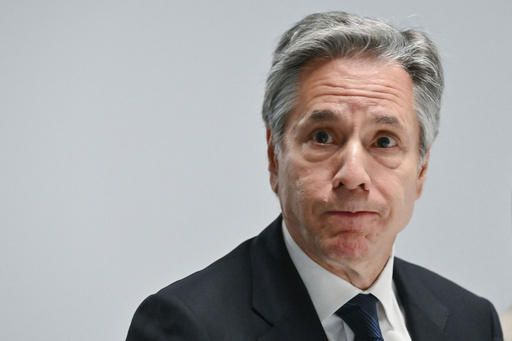
The Biden administration announced on Tuesday its intention to formally acknowledge and support a new Syrian administration, contingent upon the new government denouncing terrorism, eliminating chemical weapon stockpiles, and upholding the rights of minorities and women.
Secretary of State Antony Blinken outlined in a statement that the United States will collaborate with various Syrian factions and regional allies in order to facilitate a seamless transition from the ousted regime of President Bashar Assad.
While specifics regarding the groups involved were not disclosed, the State Department has indicated that discussions with the leading Syrian rebel faction could still be a possibility, despite its classification as a terrorist group.
This conditional commitment for support emerges amid ongoing U.S. efforts to combat Islamic State elements, aiming to prevent the resurgence of the group as a global threat while also supporting Israeli military operations in the region.
The rapid downfall of Assad’s government has positioned the Biden administration to carefully navigate another complex scenario in the Middle East, especially with President-elect Trump insisting that the U.S. should refrain from direct involvement.
Blinken emphasized that the destiny of Syria should be determined by its people, urging other nations to participate in an inclusive and transparent process without interference.
Assad’s government saw a dramatic collapse due to a swift offensive led by the rebel coalition Hayat Tahrir al-Sham (HTS), which has been labeled a “foreign terrorist organization” by the U.S. since 2018.
The State Department has indicated it may reconsider HTS’s designation if the group takes measures to address the reasons behind the label, though it clarified that this designation does not restrict potential dialogues with its officials.
Florida Representative Mike Waltz, selected by Trump to be his national security adviser, stated that it remains uncertain whether HTS and its leadership, specifically Abu Mohammed al-Golani, are on a peaceful path.
“While he hasn’t been executing former Assad regime officials, they appear to be engaging in dialogue, which is a promising initial sign,” Waltz remarked during a Fox News interview.
He confirmed that both Trump and his team are closely monitoring the situation, especially regarding the significant number of ISIS operatives and their affiliates still detained in camps following the previous administration’s efforts to dismantle the ISIS caliphate.
Over the weekend, Trump expressed on social media that the U.S. should avoid becoming involved in the conflict, asserting, “THIS IS NOT OUR FIGHT.”
In response to the evolving situation, the U.S. launched a considerable operation against ISIS strongholds in the Syrian desert, seeking to thwart the group’s resurgence amid the turmoil. Approximately 900 U.S. troops remain stationed in Syria to counter this threat.
U.S. Central Command confirmed that the top military leader for the region, Army Gen. Erik Kurilla, visited Syria to meet with the U.S.-allied Syrian Democratic Forces (SDF) and assess the rapidly changing landscape regarding security and efforts to prevent ISIS from taking advantage of the current instability.
The White House has also shown support for Israeli military operations targeting Syrian military assets and purported chemical weapons facilities, following Assad’s government collapse.
“These are essential operations aimed at neutralizing perceived threats to their national security,” commented John Kirby, a spokesperson for national security, noting that the U.S. would defer to Israel regarding the details of their military actions.
Kirby reiterated Israel’s right to self-defense while withholding confirmation on whether any U.S. intelligence played a role in the recent strikes.
Additionally, he reaffirmed U.S. backing for the 1974 Golan Heights disengagement agreement but refrained from criticizing Israel’s occupation of the de-militarized zone.
The agreement, forged in the aftermath of the Yom Kippur War, established a buffer area between Israel and Syria.
Israeli Prime Minister Benjamin Netanyahu stated that the military’s occupation of the buffer zone is necessary, declaring that the disengagement agreement has become void following the rebellion’s takeover in Syria.
Turkey, Saudi Arabia, Egypt, and Qatar have expressed condemnation regarding Israel’s actions in the Golan Heights, which sits roughly 60 kilometers (40 miles) from Damascus.
Following these developments, Biden is sending National Security Adviser Jake Sullivan to Israel to converse with Netanyahu and other officials about the situation in Syria, along with ongoing measures to negotiate a ceasefire and hostage resolutions related to the Gaza conflict.
Sullivan is also scheduled to meet with families of American hostages held by Hamas, with the White House indicating that while a deal is not imminent, current circumstances may improve the likelihood of achieving progress.
Kirby noted that Hamas must recognize its increasing isolation as external support diminishes, which may incentivize the group to consider a resolution.
Additionally, a correction was made regarding the timeframe of the terrorist designation of HTS by the U.S.—it was designated in 2018, not 2012.
